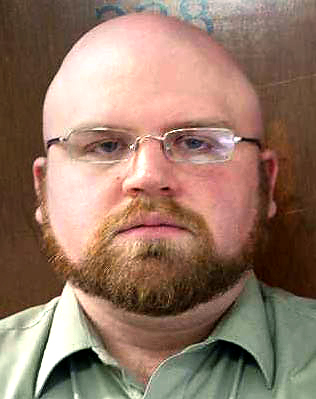As doubts rise globally and nationally about the safety of nuclear power, a Chattanooga man was arraigned Thursday on federal charges of falsifying nuclear safety records at the only reactor being built in the United States - the second unit of Watts Bar Nuclear Plant in Tennessee.
Contract electrician Matthew David Correll, 31, is accused of falsifying inspection and measurement reports last August for safety-system power cables in the containment structure of the $2.5 billion Watts Bar unit 2, located near Spring City, Tenn.
"Cutting corners on the construction of our nuclear power plants is a serious matter. Our prosecution will be vigorous and thorough," U.S. Attorney Bill Killian said in a prepared statement. "We always take the falsification of federal records very seriously, especially given the nature of these records at these facilities."
Correll, who faces up to five years in prison and a possible $250,000 fine, could not be reached for comment. His court-appointed attorney did not return calls seeking comment Thursday.
TVA spokesman Duncan Mansfield said Correll was one of about 80 workers at Watts Bar employed by Williams Specialty Services, a subcontractor from Tucker, Ga. Williams Specialty was hired by Bechtel Power Corp., TVA's Watts Bar contractor, Mansfield said.
Penny Sherrod-Campanizzi, chief operating officer of Williams Specialty Services Group, the parent company of the subcontractor, said Correll's employment with the company ended in September and the company only learned of the indictment Thursday.
"We're acting in full cooperation with TVA and Bechtel," she said.
Mansfield and Ashok S. Bhatnagar, TVA's senior vice president for nuclear generation development and construction, said Correll's indictment is not connected to Nuclear Regulatory Commission concerns raised in February.
The federal regulator questioned "errors and omissions" in a Watts Bar fire protection report and also complained about excessive delays in providing information. The NRC called on TVA to promptly supply information for its review of an application for a reactor operating license.
NRC spokesman Roger Hannah said Thursday that he does not know the status of the issues raised in the NRC's February letter citing "errors and omissions" in Watts Bar fire safety inspections.
Soon after TVA received the letter, site Vice President Masoud Bajestani abruptly left his job overseeing the construction project. TVA wouldn't provide details about his departure, calling it a personnel matter, but has said it wasn't related to the NRC letter.
According to court documents related to Bajestani's divorce, he falsely told TVA that he had a financial hardship in order to pull $1.8 million from a future bonus fund. Documents show he later said he wanted to invest money in his native Iran.
Bajestani moved to the United States from Iran in 1975 and holds dual citizenship.
As Watts Bar site vice president, Bajestani was paid $619,000 last year and was eligible for extra bonuses if the TVA project is finished on time and on budget.
TVA officials said Thursday that neither the Correll nor the Bajestani probes would delay the completion of the new reactor. The 1,200-megawatt reactor project is expected to be finished by October 2012
Bhatnagar said Correll's indictment indicates that TVA's safety systems work, even in the building stages.
"Concerns were discovered and investigated by TVA and, in accordance with procedures, investigated by the inspector general's office and other authorities. The system worked," Bhatnagar said.
He said TVA also has reviewed other work performed by Correll.
TVA and other U.S. utilities are facing renewed calls for safety reviews since the Fukushima Dai-ichi nuclear plant disaster in Japan, whose reactors are now in varying stages of overheating and meltdown after an earthquake and the resulting tsunami.
NRC documents show most U.S. reactors need to meet higher earthquake standards than previously believed.
And TVA officials confirmed last week that the battery-powered backup systems on reactors here and elsewhere in the U.S. are rated to work for only four hours. Japan had twice that much battery backup at Fukushima's reactors.

